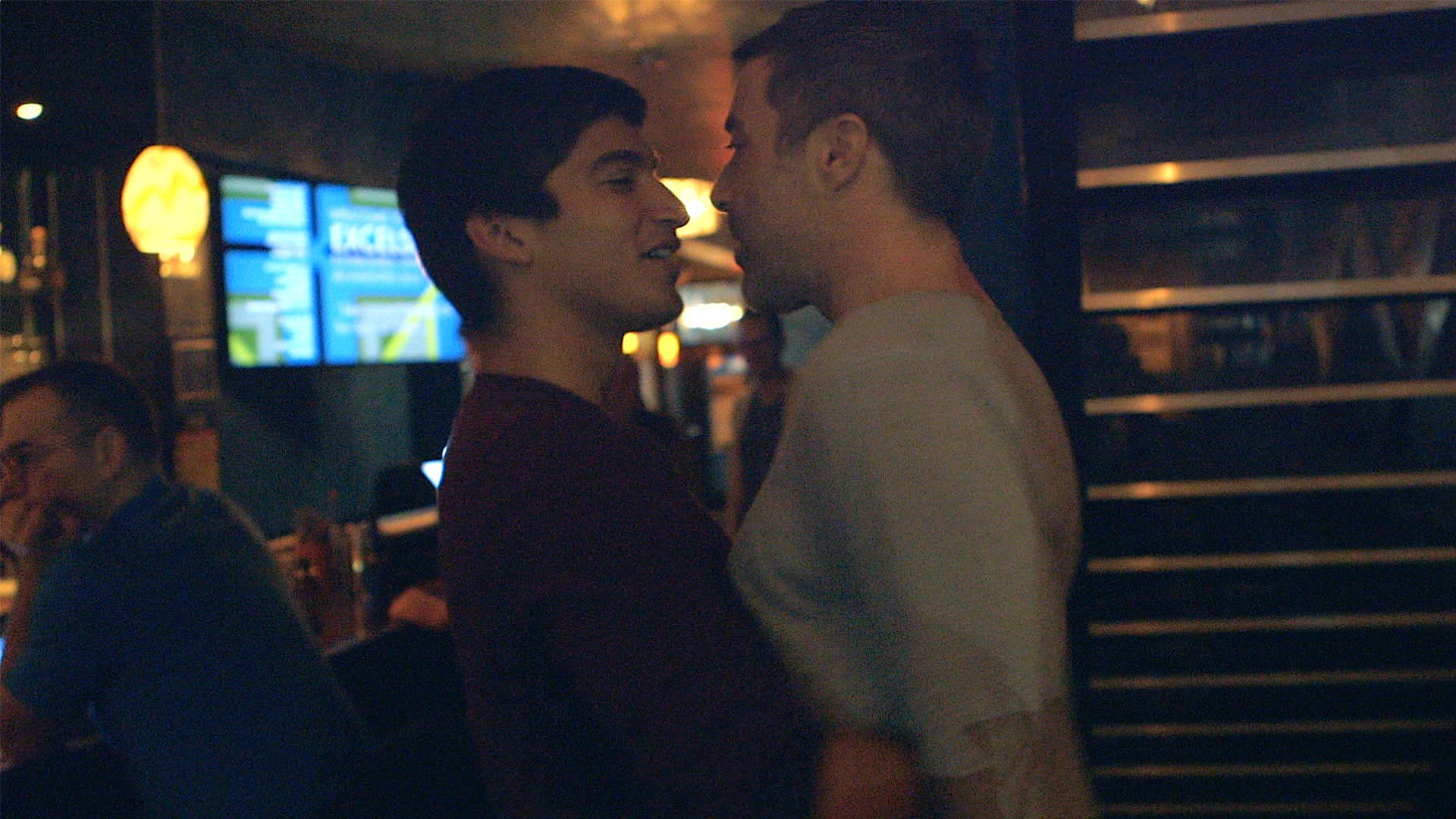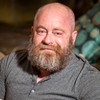Photo via Getty Images
Last week, I was talking with my friend, a queer DJ named Mateo Segade, about gay nightlife here in LA. I work as a doorman at the Eagle, a gay bar, and Mateo is a DJ who plays queer events all over; between us, we’ve seen all sides of the gay nightlife industry, both for better and worse (sometimes much, much worse).One of the worst parts of gay nightlife is how it can internalize and regurgitate the worst tendencies of queer communities. Queer people, especially gay men, are known for dealing with a slew of self-doubts and anxieties in noxious ways. Gay men are liable to feel incredibly insecure over their masculinity, a kind of internalized homophobia that leads them to idolize “masc 4 masc” “gaybros” and shame and oppress femme men. They’re sometimes sickeningly racist; it’s still not uncommon to see guys publicly declare a “preference” for white guys on their dating profiles, or openly exoticize and tokenize certain races. In various other ways—a resistance to the presence of women and non-cis gay men in their bars; a tendency towards groupthink in the way they dress, look and act—gay men often wear the trauma they’ve experienced from society and each other on their sleeves (or biceps, as it were).So Mateo and I decided to make fun of it, and photoshop a fake poster for a night reflecting all that bullshit. Clint Yeager, one of my coworkers at The Eagle, threw out the name “Tox-Masc.” Soon enough, we were spitballing all kinds of funny taglines: “You Say Genderqueer, We Say Get Outta Here,” “Midnight Performances of Men Punching Each Other,” “No Drag Queens, Women Or Anything that Represents Them,” and “Only the Straightest Gogo Dancers Taking Your Gay Dollars.”The next afternoon, Mateo’s flyer was on Facebook, and it seemed to really resonate. Gay publications wrote about it. Friends and strangers began emailing me about it, both with praise and condemnation. And those responses probably said more about gay nightlife than the poster ever could.People sent me stories about their experiences with nights not dissimilar from our hyperbolic poster. “A few months ago I showed up at a gay bear bar here in San Francisco,” wrote a friend who identifies as genderfluid. (They asked I not disclose their name because of the nature of their story.) “I was dressed as a woman but I had my beard on, and was giving them gender-bending realness. The guy at the door told me I wasn’t welcome. I was stunned. Not welcome? Bitch, this is San Francisco. This is the one place I should always be welcome. The bar manager came out and literally told me to calm down, then to come back another time. That this wasn’t the ‘appropriate night’ for me. What the fuck does that even mean?”“If that can happen in San Francisco, imagine what’s going on out there in the real fucking world,” they concluded. “It made me want to show them my big dick, wag it around at them in my dress, let them know where reality really is.”“I once got a fifteen minute lecture at the door of a gay bar here in San Diego for even setting foot in there,” wrote Jess Keys, a.k.a. artist Xanadu Rocketship, who identifies as a bisexual woman, performs at local drag shows and is a well-known drag ally. “I was meeting a friend after he was done [performing]. The door guy said things like, ‘Keep your gross hands to yourself. Don’t even make eye contact with anyone. If they get aggressive with you, security is gonna let them.’ Etc. Etc. ‘If we could legally ban women, we would. Most men in here hate women.’”“Like I’m just gonna wander into the back room and start grabbing dicks!” she wrote.There were also angry emails that decried the rising presence of women, drag queens and femmes at gay parties, which were infuriating, to say the least.“I personally know of a few promoters who won’t hire me because of my work with drag, trans and queer audiences,” Mateo told me in a conversation during the aftermath. “They think it somehow lessens my appeal to hyper-masculine partygoers if I play for more inclusive crowds. Or that my music will be too ‘soft’ and ‘feminine.’”Now, it should be noted that Mateo and I both often work at bars and nights that play into our poster’s tropes, places that sometimes have bear or masculine-leaning themes. And it’s not that those themes or communities are inherently bad. The bear community started as a home for gay people who felt rejected by the beauty standards imposed by the larger gay community, which are often so keenly felt that they cause body dysmorphia and worse. And at first glance, I myself am exactly what my poster is making fun of: I present as “masculine,” a reality I acknowledge but one that makes me feel silly, because I hate referring to myself with labels. I have a beard, I work out five days a week, and people construe me as a “bear” (again, a label I hate).The thing is, I don’t think masculinity or one’s attraction to masculine attributes are necessarily evil or bad. It’s when that masculinity or attraction becomes toxic—when it leads to toxic behavior, becomes the penultimate way one defines what they’re attracted to, and leads them to marginalize others or erect divisions and walls between people—that it’s a problem. I might be masculine, but the word “masculine” alone is problematic to me. Like by saying “I’m masculine,” I’m somehow separating myself from other members of my community, calling attention to things that have very little to do with who I am as a human being.
Watch therapist Zach Rawlings discuss body image issues in the gay community:
“People who have reacted negatively towards the flyer are guys who don’t know the difference between masculinity and toxic masculinity,” Mateo said. “They think we’re saying everyone should be wearing a dress or something. That’s not what this is about. There are plenty of ‘cool’ parties that celebrate conventional masculinity in a positive way. What we’re talking about are a set of stereotypical, fucked up behaviors that stem from negative influences from straight, white culture—and they’ve come to invade gay nightlife in lots of gross ways.”I’m not trying to tell anyone who they should fuck or find attractive. Fuck who you want. That’s none of my business. What is my business—and should be all of our business—is how we treat each other as a community.I’ve said this a lot, and I mean it: we’re living under enough oppression as it is in our society. We need to treat each other with extra kindness and beauty as a result. We should defend every member of our community—and this means the larger queer community and our allies—and their right to be the fucking amazing people they are. Did we really survive AIDS, centuries of religious and political intolerance, decades of overt intolerance across America and the fight for basic civil rights only to write “masc 4 masc” on a dating profile? We should celebrate the rights and acceptance we’ve seen by championing diversity. Be as masculine or femme or gender-bending as you want. Be who you are, and celebrate who we are, together. Because divisions only weaken our community, and that impulse to divide, more often than not, is one we inherit from those who have sought to oppress us for ages. We’re only as strong as the strength and cohesion of our community.And fuck anyone tries to tell you you don’t belong in a queer space. To paraphrase my friend: Bitch, these are places we should all always be welcome.Follow Jeff Leavell on Twitter and Instagram.
Advertisement
Advertisement
Advertisement
Watch therapist Zach Rawlings discuss body image issues in the gay community:

“People who have reacted negatively towards the flyer are guys who don’t know the difference between masculinity and toxic masculinity,” Mateo said. “They think we’re saying everyone should be wearing a dress or something. That’s not what this is about. There are plenty of ‘cool’ parties that celebrate conventional masculinity in a positive way. What we’re talking about are a set of stereotypical, fucked up behaviors that stem from negative influences from straight, white culture—and they’ve come to invade gay nightlife in lots of gross ways.”I’m not trying to tell anyone who they should fuck or find attractive. Fuck who you want. That’s none of my business. What is my business—and should be all of our business—is how we treat each other as a community.I’ve said this a lot, and I mean it: we’re living under enough oppression as it is in our society. We need to treat each other with extra kindness and beauty as a result. We should defend every member of our community—and this means the larger queer community and our allies—and their right to be the fucking amazing people they are. Did we really survive AIDS, centuries of religious and political intolerance, decades of overt intolerance across America and the fight for basic civil rights only to write “masc 4 masc” on a dating profile? We should celebrate the rights and acceptance we’ve seen by championing diversity. Be as masculine or femme or gender-bending as you want. Be who you are, and celebrate who we are, together. Because divisions only weaken our community, and that impulse to divide, more often than not, is one we inherit from those who have sought to oppress us for ages. We’re only as strong as the strength and cohesion of our community.And fuck anyone tries to tell you you don’t belong in a queer space. To paraphrase my friend: Bitch, these are places we should all always be welcome.Follow Jeff Leavell on Twitter and Instagram.
